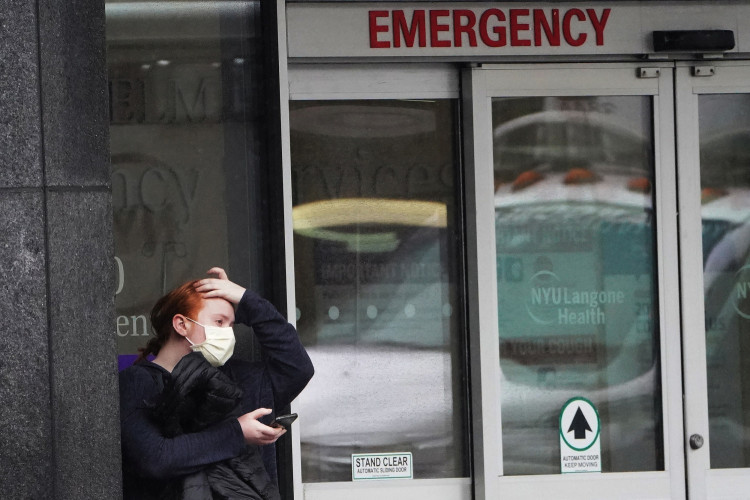President Donald Trump on Friday signed the historic $2.2 trillion Coronavirus Aid, Relief, and Economic Security Act (H.R. 748), also known as the CARES Act, which seeks to prevent the raging COVID-19 pandemic from devastating an already fragile U.S. economy.
But this early, some Democratic lawmakers are calling for a follow-up package to the CARES Act, also called "Phase 3" of Congress's coronavirus response. House Majority Leader Nancy Pelosi (D-CA) said "this (the CARES Act) cannot be our final bill" to respond to the crisis that saw the U.S. become the first and only country in the world to tally more than 100,000 confirmed COVID-19 cases, also on Friday.
Pelosi said her priorities in the upcoming Phase 4 will center around bigger direct payments, expanded eligibility for families and medical leave and more grant money for states.
Phase 2 was a $104 billion package largely focused on paid sick leave and unemployment benefits for workers and families provided for under the Families First Coronavirus Response Act signed into law on March 18.
Pelosi had described the CARES Act "as mitigation" of the pandemic's destruction, predicting Congress will draft more plans to aid in 'recovery'." Trump was happy with the CARES Act, which was approved by a voice vote at the House. The Senate version was approved Wednesday by a 96-0 vote.
"I signed the single biggest economic relief package in American history," said Trump. "This will deliver urgently needed relief to our nation's families, workers and businesses, and that's what this is all about."
In 2020 dollars, the CARES Act is almost double the size of the 2009 Recovery Act passed in the wake of the Great Recession of 2008 and nearly triple the 1933 New Deal approved during the deep depths of the Great Depression that began 1929.
"Right now we're going to pass this legislation and that is because so many families have been touched by this crisis," said Pelosi.
She said efforts of the Democrats transformed the CARES Act from the pro-business, pro-rich legislation demanded by Republicans into a pro-worker, pro-poor law championed by Democrats.
Pelosi enumerated the numerous provisions in the law, which she said was rewritten by Democrats to focus on families rather than corporations. She said while the bill doesn't contain everything House Democrats wanted, it's a good start that can be built upon.
The most important provisions of the CARES Act:
- Provides $1,200 to Americans making $75,000 or less ($150,000 in the case of joint returns and $112,500 for head of household) and $500 for each child.
- Smaller checks will be sent to those making $75,000 to $99,00 and nothing for those making more than $99,000
- Expands eligibility for unemployment insurance. It also provides Americans with an additional $600 per week apart from the unemployment amount determined by each state.
- Provides $250 billion for unemployment payments. The law boosts the maximum benefit by $600 per week, and extends coverage by 13 weeks. It provides full salary for four months for laid off workers. Part-time, self-employed and freelance workers are also covered.
- Adds $15 billion for food stamps to cover new applicants, $9 billion for child nutrition and $23.5 billion for farmers and ranchers.
- Creates a $349 billion loan program for small businesses.
- Allocates $130 billion in relief to the medical and hospital industries.
- Expands tele-health services in Medicare.
- Gives the Secretary of the Treasury the authority to make loans or loan guarantees to states, municipalities, and eligible businesses
- Allocates $500 billion for assistance to businesses, states and municipalities. No more than $25 billion of this amount is designated for passenger airlines, $4 billion for air cargo carriers and $17 billion for businesses critical to maintaining national security.






